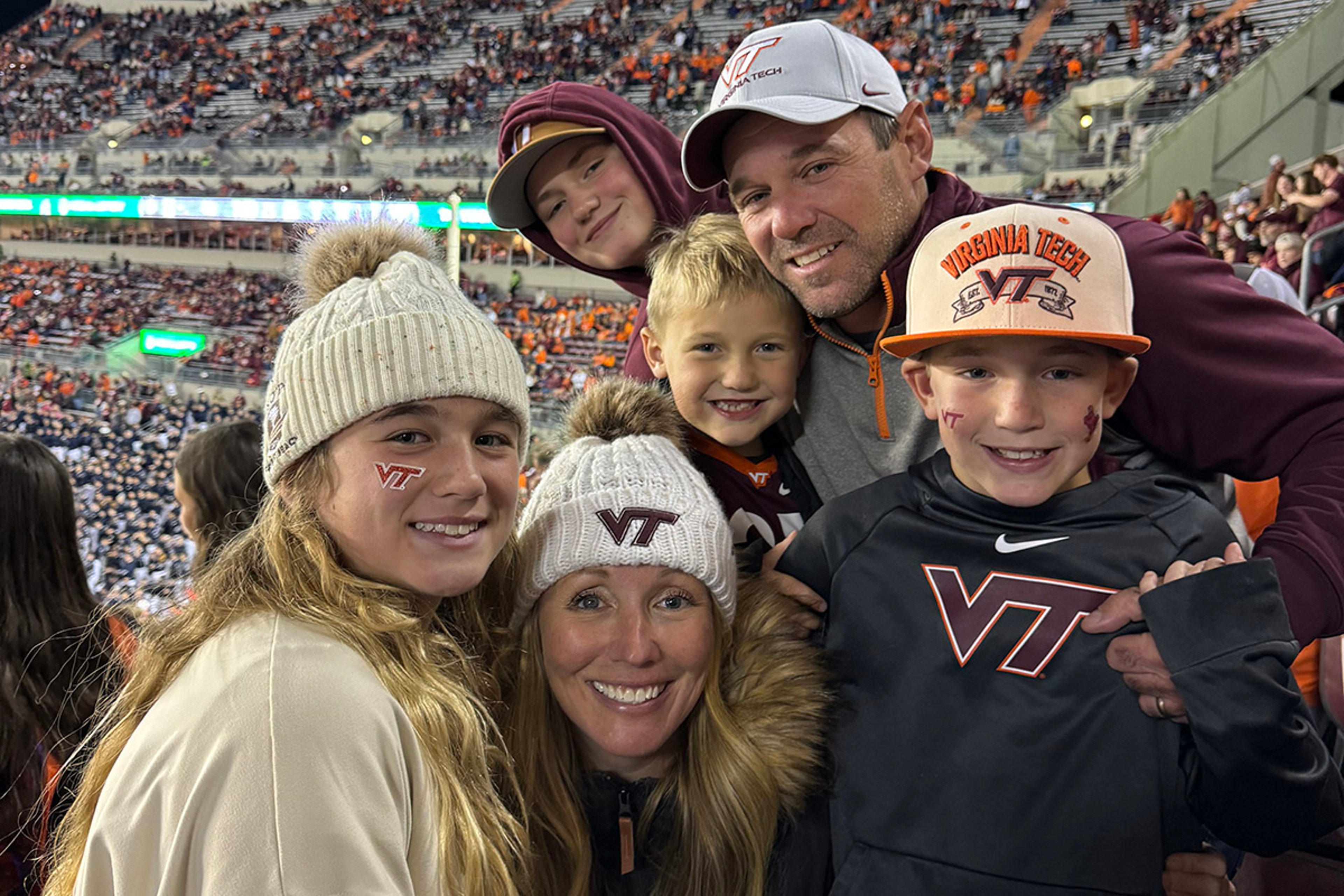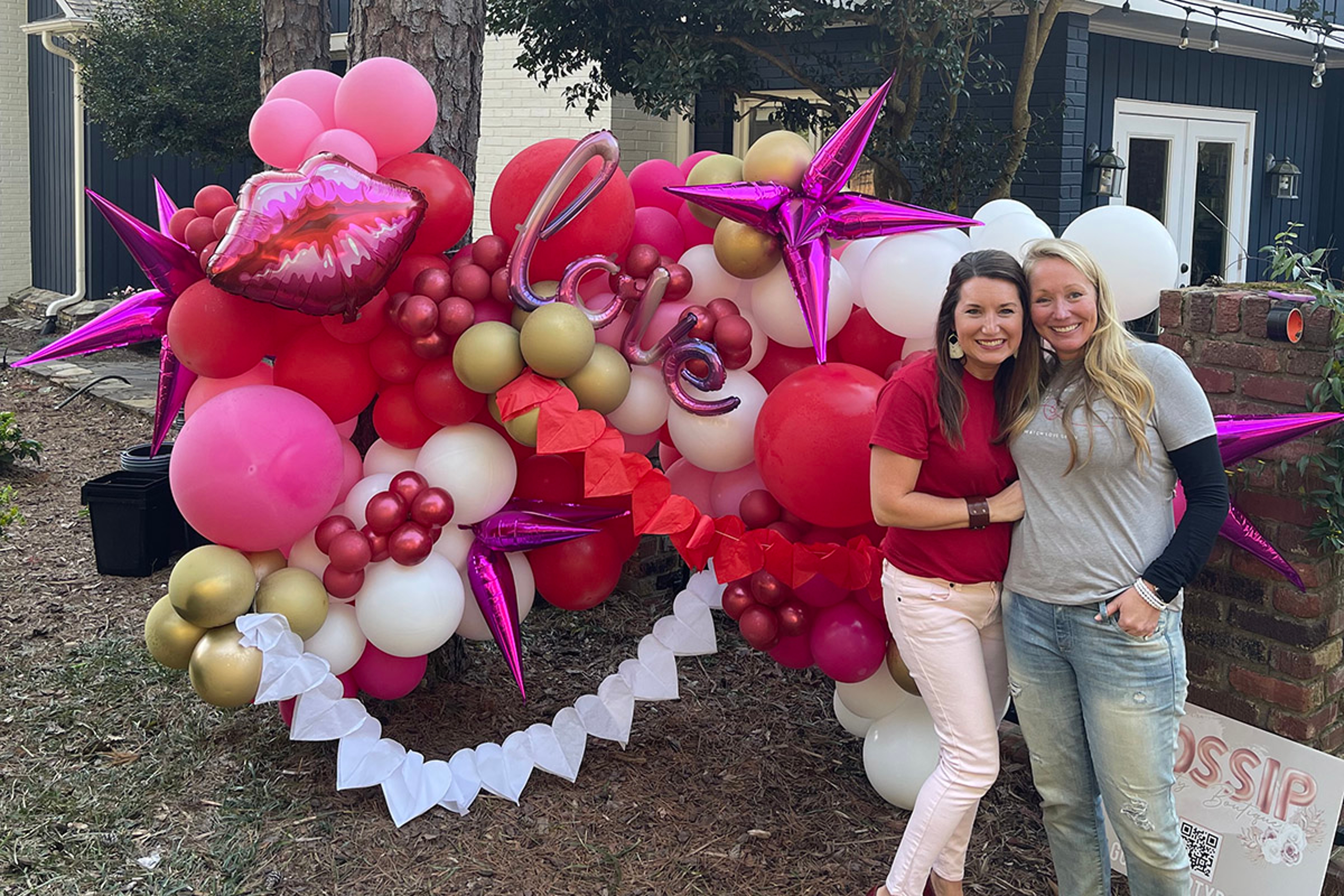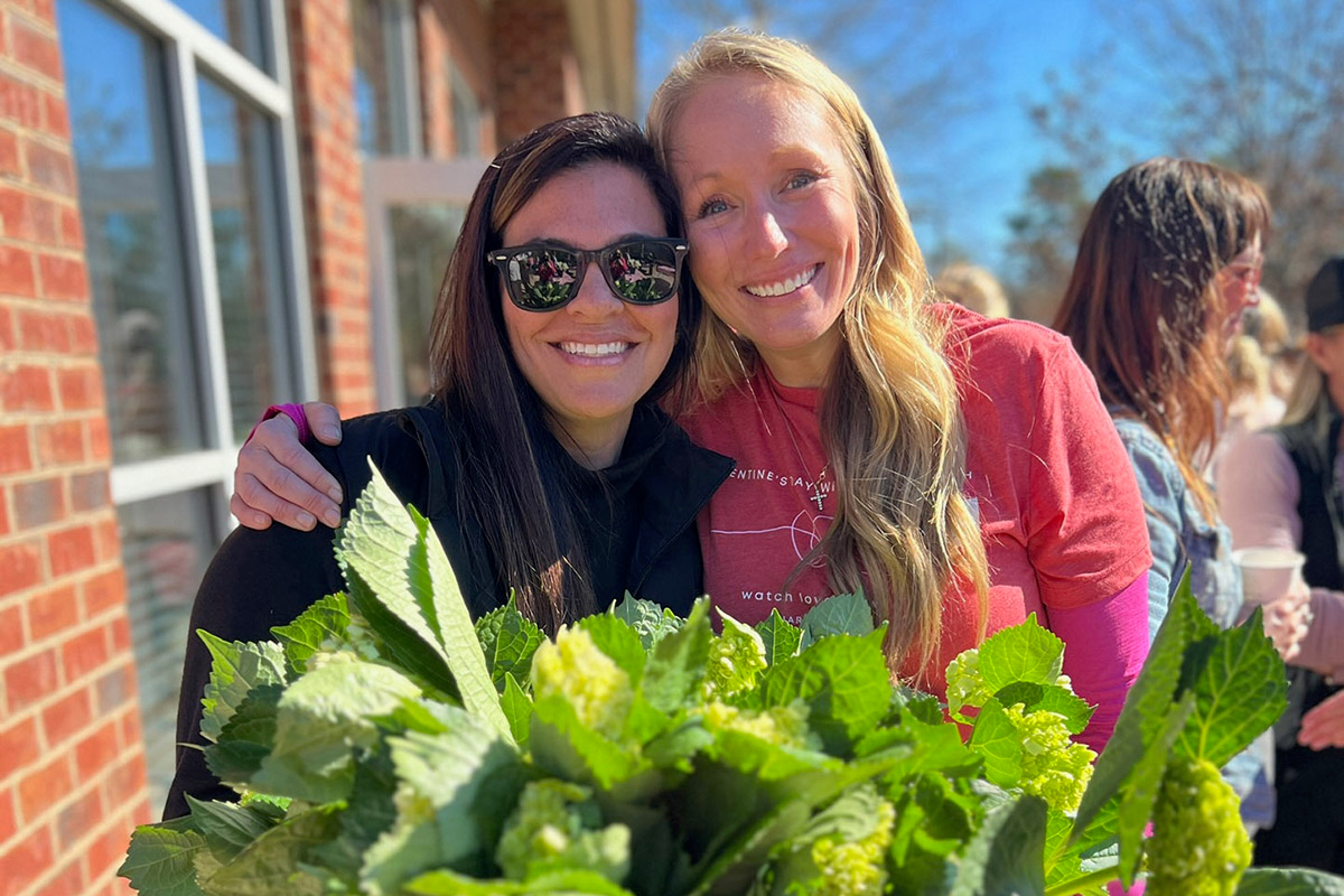North Carolina Mom Spreads Love to Widows with Valentine’s Flowers
Ashley Manning and her team of volunteers hope to distribute bouquets and gifts to 1,500 widows in the Charlotte area this year.
Dec 19, 2025
For Ashley Manning, flowers are more than just beautiful arrangements they’re her love language. Growing up in Pittsburgh, she found joy and comfort in surrounding herself with fresh flowers and greenery. Her passion turned into something extraordinary.
Since moving in 2006 with her now husband, Brandon, to Charlotte, where they are raising their four children, Manning turned her love of flowers into a creative outlet, crafting flower arrangements for friends, family, and acquaintances. For Ashley, few things are better than putting a smile on someone’s face by gifting the perfect bouquet.

Her hobby became something more during the COVID-19 lockdown when she was invited to create bouquets for an outdoor pop-up shop. That led to her launching her online floral and home decor business, Pretty Things by A.E. Manning, in November 2020.
Soon after, she had an idea, one that was sparked by an interaction she’d had in February of that year. As Valentine’s Day approached, Manning learned that one of her son’s teachers had lost her husband to cancer, her giving spirit enacted, she presented the widow with a gorgeous bouquet. "She told me how much those flowers meant to her," Manning says. "It was about acknowledging her pain." Ashley is acutely aware that people need to feel seen.
Fast forward to the days leading up to Valentine’s Day 2021, and Manning took to Instagram too see if anyone in the community would be interested in helping to create flower bouquets for widows. Dozens of people, most of whom Manning had never met before, signed up to volunteer that first year, and the Valentine’s Day Widow Outreach Project was born.
A vision beyond flowers
After a successful first year of the outreach project and with her business doing well, Manning was excited about the future but then life intervened. While playing with her children, she was accidentally punched in the eye. The injury left her with a detached retina and subsequent medical difficulties that resulted in 13 surgeries and left her legally blind in her right eye.
Frequent hospital stays, imposed bed rest, and chronic pain meant that Manning had to put her flower business on hold. But knowing the impact she made in year one, she wasn’t willing to forego year two of the Valentine’s Day Widow Outreach. "We went from that first year doing 125 flower bouquets to 400 in the second year," she says. "I don’t even know how I got through it because I ended up in surgery two weeks later." Indeed, it took another 10 months before Manning could return to her business.
Since then, Manning has had to restructure her life. "I've spent the past couple of years learning how to do things again without two eyes," she says. "The whole thing has given me a different perspective on suffering, pain, judgment, and compassion."
One positive to emerge from the second year of outreach was the media attention. "That’s really when we got on the map as far as what we’re doing and who we’re serving," Manning says.
Today, the outreach team of 900 volunteers, many of whom are widows themselves, works out of a rented facility. There, they spend three or four days prepping and unpacking donations, processing flowers, conducting quality control checks, arranging bouquets, and organizing gift bags that include items donated by local businesses. "We include something sweet, something savory, a little piece of jewelry, wine, gift cards, and other little gifts," Manning says. On Valentine’s Day, an army of 500 volunteer drivers delivers the goodies to widows who have been nominated by friends and loved ones. (Nominations are collected on the website year-round.)
"I love the way it makes people feel to receive flowers," Manning says. "No matter what it is, if you've lost somebody, if you're celebrating something, if you're mourning, they just bring this breath of life."
The act of giving flowers can have a similar effect, which is why Manning encourages her children to be involved in the Valentine’s Day Widow Outreach Project every year. "My kids get to be off school; the school doesn't love that, but my kids have learned something far greater than anything they could learn at school."
Manning tells of a time her children came with her to make a delivery to an elderly neighbor’s home. Afterward, her daughter, Mia, expressed how good it made her feel to bring happiness to someone who needed it. "That’s a lesson you could never teach them unless they feel it for themselves," Manning says. "We are showing them how we’re supposed to care for one another."
A journey of healing
One such volunteer is Jillian Myers, who also serves on the board of the nonprofit. But she’s also been on the receiving end of Manning’s generosity.
Myers’ husband, Jason, a meteorologist with WBTV in Charlotte, was killed in a work-related helicopter crash just before Thanksgiving in 2022. The couple, just shy of their 20th wedding anniversary, have four children, and that Christmas, Manning arranged a bouquet and had it delivered to Myers and her family.
The gesture moved Myers.
"When you walk through trauma and loss, there’s immense shock that you experience. It’s incredibly overwhelming, and you really don’t know how to put one foot in front of the other," Myers says. "Ashley’s heart is just huge, and the empathy she embodies is just tremendous."

The following February, Myers not only signed up to be a volunteer but was nominated to receive a delivery herself. "The community that came out was beautiful and life-giving," Myers says. "It was healing to be part of something that was just multiplying love within a community that has shared loss."
"And that is what Ashley is doing. You don't want your pain to go to waste. And so being able to bring light to others that are walking that journey, it’s healing and comforting to me."








